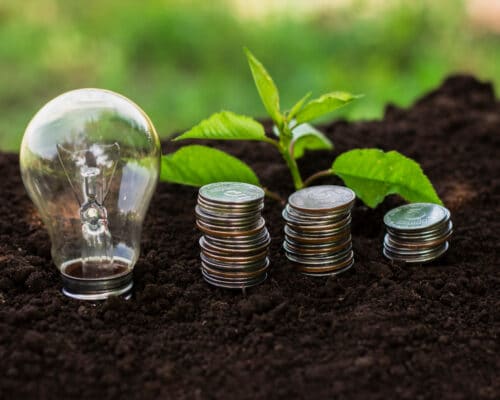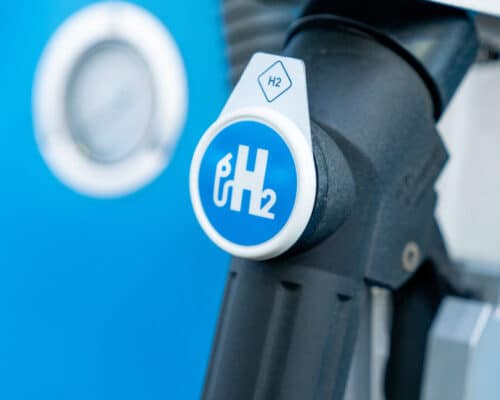Hydrogen

Hydrogen’s Role in the Asia Pacific’s Energy Transition
Experts warn that achieving net zero in less than 30 years requires an increased focus on efficient and commercially available solutions like solar and wind, not conceptual ideas like hydrogen.
Hydrogen Oil: Green vs Blue, What’s the Difference?
Hydrogen energy is significantly more efficient than fossil fuels. Even more importantly it can be produced in a sustainable way and is considered a "renewable energy" source. Unfortunately, this is not true for all types of hydrogen energy and largely depends on how it is produced.

Clean Coal vs Renewables: Economic Costs and Gains For Southeast Asia
Despite the subsidies and industry support, Japan’s proposed technologies are struggling to prove promising even at home. Yet, it aims to export them to countries with much more fragile economies and significant challenges. Crunching the numbers reveals that Southeast Asia has a lot to gain if its pursues renewables instead.
The Future Of Hydrogen: Powering The World
Leading international organisations consider green hydrogen a critical part of the world's future energy mix. Public and private sector support will reduce green hydrogen costs and drive technological advancements, boosting demand.
Hydrogen Cost: Can We Afford It?
Due to an immature market and technology, green hydrogen is not yet cost-competitive with fossil fuel-derived hydrogen. Government policy will be crucial in reducing these costs by facilitating private sector involvement and developing market demand.

Hydrogen Energy: False Hope or Solution?
Energy Tracker Asia speaks with chemical engineer, Paul Martin, at the hydrogen science coalition about the feasibility of hydrogen energy.
The Uses of Hydrogen: A Catalyst for a Sustainable Future
Hydrogen is a common raw material used in many industries but is primarily produced with fossil fuels. If these industries switch to green hydrogen, it will significantly impact global greenhouse gas emissions.
Overcoming the Challenge of Hydrogen Storage
Hydrogen storage is one of the main building blocks for green hydrogen adoption. However, hydrogen has several characteristics that make it difficult to store effectively at scale. Ongoing research, development and investment are critical for overcoming these concerns.
Hydrogen Infrastructure: Development and Challenges
The lack of existing hydrogen infrastructure is a significant hurdle to the widespread adoption of green hydrogen. However, there is an incentive for the public and private sectors to develop the required infrastructure. Hydrogen can help the world reach decarbonisation goals, and the hydrogen market is expanding with lucrative opportunities.
Global Hydrogen Market: Size, Growth and Future
Hydrogen demand is increasing, and production capacity will need to rise. However, this capacity should focus on low-carbon green hydrogen, which can be a major energy carrier in the net-zero energy transition.
Hydrogen Production Methods from Fossil Fuels Overshadow Alternatives
Today, 99% of hydrogen is produced using fossil fuels. However, green hydrogen can become a viable alternative.
Hydrogen Economy – Meaning, Benefits and Future
The hydrogen economy is the idea of a world partially powered by hydrogen. If green hydrogen becomes the predominant production method for hydrogen, it will play a critical role in the world's low-carbon future. However, green hydrogen needs to be financially viable and requires ongoing support from the public and private sectors.
Japan’s Hydrogen Plans: A Closer Look
Japan is basing much of its 2050 net-zero goals on hydrogen development without clearly defining what it considers "clean hydrogen". As such, its hydrogen plans mostly rely on blue hydrogen, which still involves burning fossil fuels.

The Pros and Cons of Hydrogen Energy
Hydrogen energy has many pros. It can be made sustainably with few emissions. However, it has several significant cons, like high production costs and a lack of infrastructure. If the world can provide more financial and political support for the technology, it will play a major role in the global energy transition.
Most Popular
Categories
-
9
-
33
-
126
-
4
-
17
-
43
-
52
-
11
-
10
-
15
-
24
-
6
-
6
-
247
-
195
-
13
-
23
-
1
-
1
-
23
-
38
-
41
-
84
-
18
-
81
-
41
-
17
-
10
-
40
-
41
-
86
-
284
-
21
-
39
-
35
-
10
-
41
-
36

